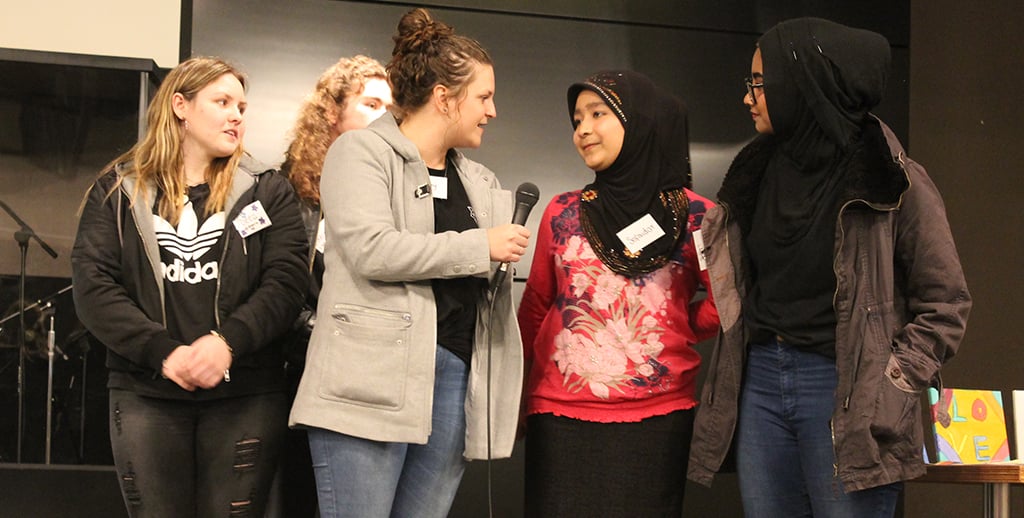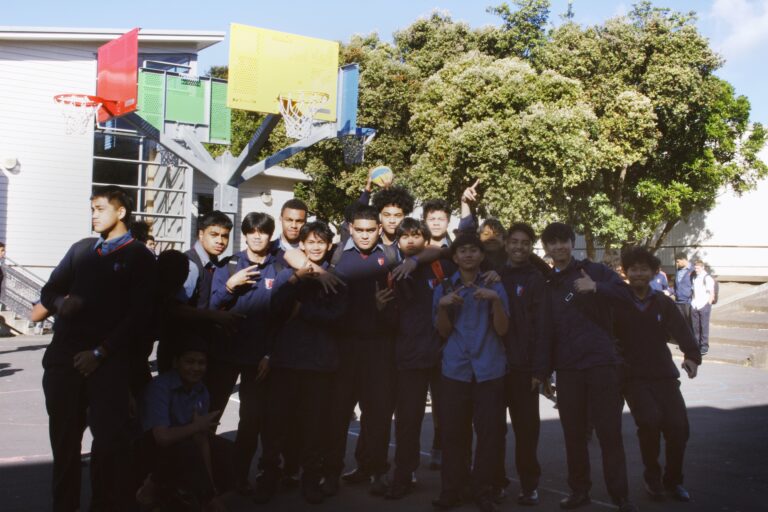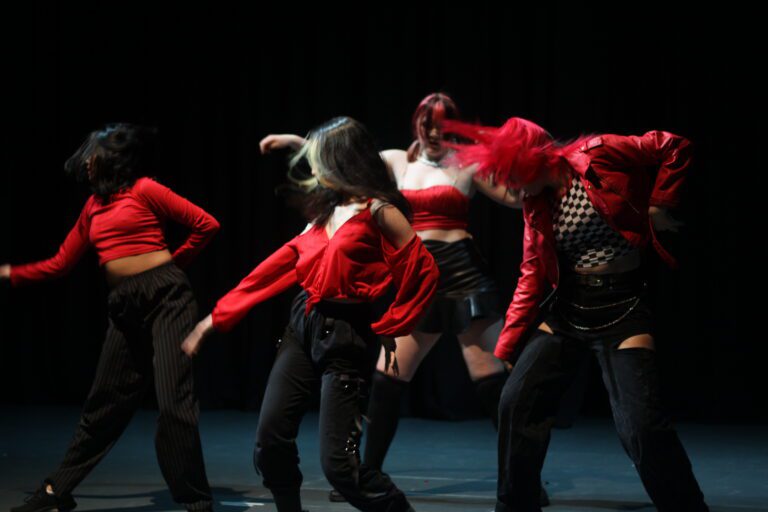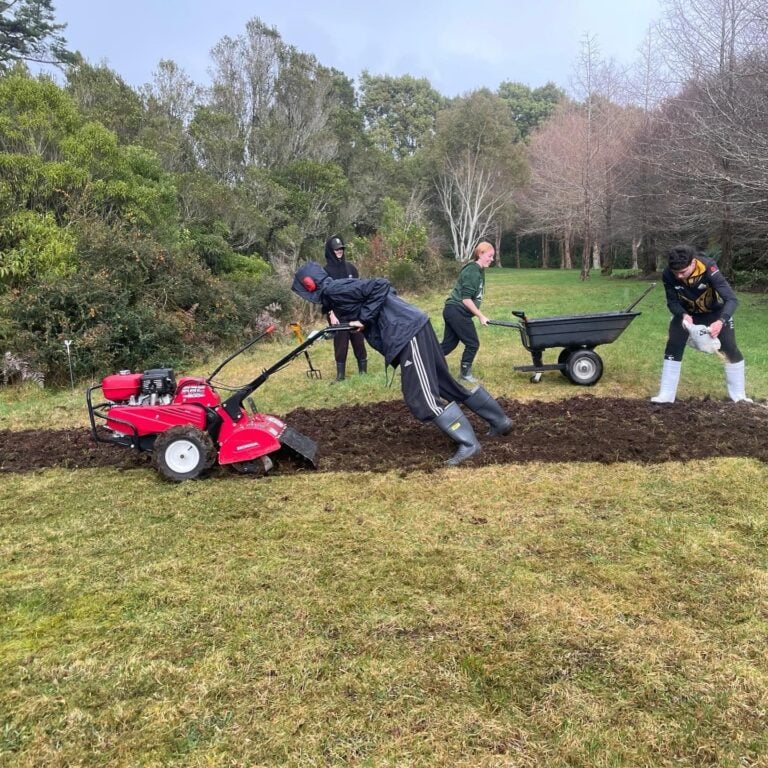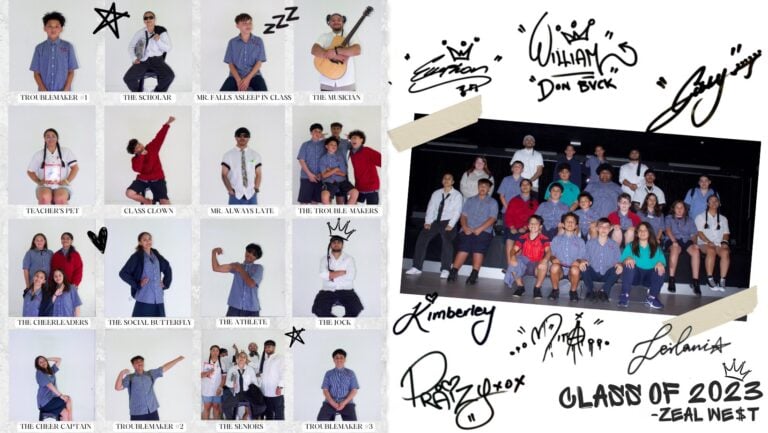Davies is an absolute champion who joined the Zeal Hamilton team as the MATES coordinator last year. We had a yarn to her about what MATES is, advice for youth workers, and how much ice cream and coffee is too much ice cream and coffee.
How did you first get involved with Zeal?
Hayley: I first heard of Zeal in high school one day while googling places to record music. I found the Zeal website and when I saw that it was an organisation specifically for young people I remember thinking “nah too good to be true”. Fast forward 6 or 7 years and it’s true guys!
I wasn’t really looking for a job when my role popped up, but my mate tagged me in a post on FB advertising the role and I applied not really thinking I would get it. I was in a place in my life when I was working in a role that was challenging but not growing me in the directions that were meaningful to me, so when the role was offered to me it was a no brainer and I’ve never looked back!
What does your typical day at Zeal look like?
Hayley: At the moment I’m gearing up for MATES to kick off for the year so my day consists of emails, reading through CVs, interviews, repeat. In between all that fun stuff we eat lots of Duck Island ice cream and drink unnecessary amounts of coffee so not much to complain about.
What is the MATES programme?
Hayley: The MATES programme is an initiative which pairs university students with year 13 students from lower decile schools for the duration of a school year. Through a combination of mentoring and tutoring, students are empowered to realise their full potential and are equipped with tools and strategies which support them to grow into that potential.
Many of the students that come through the MATES programme will be are the first in their family to attend tertiary study and have not considered it to be an option up until this point so the support that tertiary students provide helps break down the barriers that students from lower socioeconomic communities face in accessing tertiary study.
What are your plans for MATES in 2018?
Hayley: I spent the majority of my time last year figuring out how the programme was supposed to run while rolling it out at the same time, so this year so far I’ve spent some time reflecting on what worked well and how we can grow. A lot of this thought has been around how we can see and support elements of the Circle of Courage to be reflected in the journeys of the young people we work with. I’m always inspired by the wealth of knowledge and skill that is available in the room when you get a bunch of tertiary students together so I’m excited to spend a bit more time with the mentors this year working on strategies to create more intentional connections with the young people.
What are some epic moments you’ve had during your time at Zeal?
Hayley: I think the most powerful moments have been the small things that catch you off guard like a young person sharing a victory or a loss with you, and the realisation that out of everyone in their life, your the person they specifically sought out to share that moment with. One of our young people got into a top sports team and when she found out she said to me “I was so excited and I couldn’t think of anyone to tell that would care but I knew you would be excited for me”. It can be easy to write these moments off as no big deal but it just goes to show how much we actually mean to our young people even when we don’t realise it, and how important it is to be taking interest in their lives. They are never going to turn to us with the big things if they can’t come to us with the small things first.
What’s some advice you would pass on to someone wanting to work with youth?
1. Lead with humility
I think in this line of work, where our focus is on creating change, it can be super easy to let our egos take charge and fall into the “superhero mentality” where we get distracted with the desire to fix or save people and use this as a measure of good youth work. In doing that I think we rob our young people of the opportunity to develop their own tool box of problem solving skills, decision making skills and sense of agency over their own life, and ultimately creates a sense of dependency on you as the youth worker.
They are their own agents of change and ultimately it’s up to the young person to seek that out for themselves when they are ready. The best thing we can do is journey alongside them and inspire them to expect and seek out better and bigger things for themselves.
I really like the imagery of ‘alongsiders’ in which neither is leading the other. You’ve got to really be in tune with one another in order to head in the same direction without knocking each other out of step. This comes from connection and this is what I imagine leading with humility to look like.
2. You’ll never arrive at the top and you never should
If you get to a place where you feel like you have arrived and you’ve got it all figured out in terms of how to do youth work well then I think alarm bells should be ringing cause you are shutting yourself off from growth, flexibility and ultimately I think you fall out of step with your young people and their ever changing needs. I think doing anything well involves approaching each situation with an attitude of ‘what can I learn from this and how can I be more responsive?’
Following on from the alongsider imagery – your young person is your number one source of growth. You are never going to learn if you are out in front. Similarly your young person isn’t going to learn if they are staring at your back the whole time.
What are some of your favourite things to do in Hamilton?
Hayley: Hamilton is such an underdog city. Every one loves to hate it but it has definitely won my heart over the last few years of calling it home and I feel like Hamilton as a city is moving into a space of innovation and change which has been cool to see. I love markets and food and Hamilton does both of these things well so you’ll probably find me doing something like that in my spare time.
What’s your number one self-care tip?
Hayley: Be intentional about what you fill you spare time with. Being mostly introverted, I used to think that lying in bed all day, avoiding people and watching Netflix was a good way to relax and recover and then wonder why my mood and energy levels would plummet. Turns out I need to be doing things to reground myself. So getting outside, spending time with people who build me up, doing something productive. Obviously that’s not the case for everyone, but be intentional about filling your time with things that you know work for you rather than getting distracted with Facebook and wasting the day away. Also drink more water. I always forget to do that.
